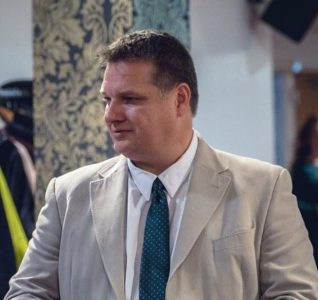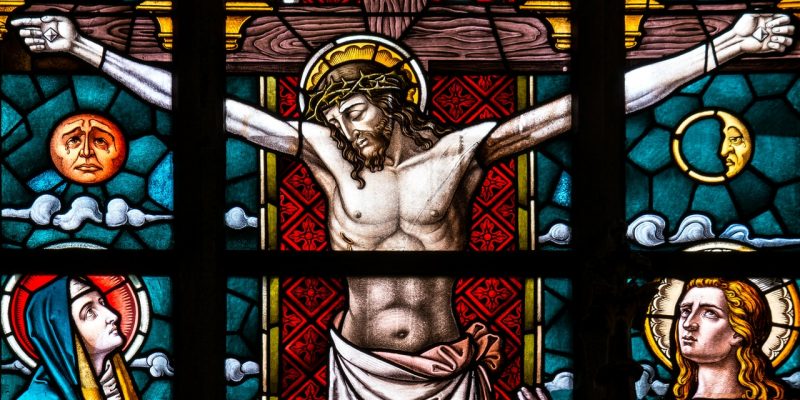It’s a climate change issue that has send waves of controversy throughout the Christian church.
Miriam Croitoru investigates how veganism has caused division amongst Christians.

Rachie Ross is a theologian and active member of Christian Climate Action– a community of Christians raising the alarm about the global climate crisis.
She is also a trustee for Operation Noah. A charity who works with churches to divest from fossil fuels.
Ten years ago, Ross and her family became involved in the climate emergency movement.
At that time, Rachie was a vegetarian with many unsettled questions about veganism.
She explained: ‘’ If I eat cheese and don’t eat the cow, I’m still causing enormous suffering on the animal. Methane from cows contributes to climate change, so I’m still part of the industry that’s creating cruelty to animals, poor mental health to farmers and pesticide runoff. All the things I don’t want to eat an animal for, I’m still doing it but further down the line. ’’
Coming to this realisation and finding out that a plant- based diet is low carbon, Ross decided she doesn’t want to be part of the meat industry anymore and became a vegan, alongside her family and dog: ‘’ To say that I care about the climate and my neighbour and not be vegan, for me, it is a total disconnect because I know what it’s doing, I know the facts. You can’t worship God and have dirty hands.’’

Daryl Booth is the founder of SARX, a charity empowering Christians to live peacefully with animals for environmental and religious reasons.
Booth has been a vegan for 10 years and started the charity in 2014 after seeing ‘’a gap in the market.’’
‘’ The idea of animals and the various concerns that affect them is often not addressed in our small groups, our sermons, in our worship and missions. It’s a niche message and it’s quite sad that I had to start this charity ’’ added Booth.
In 2017, SARX hosted the Creature Conference in London. According to the charities’ website, it was ‘The largest Christian engagement with animal issues in the world since the 19th century.’
For SARX, this was a platform with a positive effect on people reducing meat consumption.
Booth said: ‘’ A lot of people felt very empowered to explore these issues in their personal lives and in their communities and many people did say that they would cut back on meat. Some literally went vegan on the day. It was powerful.’’
However, there are challenges the charity faces in spreading their message: ‘’ If it’s perceived by someone as we trying to take something away, people can feel threatened.’’
Historically, Christians have engaged with animal issues. Reverend Arthur Broome founded the Royal Society for the Prevention of Cruelty to Animals (RSCPA) in 1824. Likewise, the British politician and philanthropist, William Wilberforce instated the first animal welfare legislation in parliament in 1835.
The Church of England states that it is their responsibility to safeguard God’s creation. Since 2005, the environmental programme exists to guide the community in taking action on the climate and ecological emergency that ‘’ threaten the flourishing’’ of God’s creation.
Booth trusts there is a good reason for Christians engaging with animals and environmental issues, but this message is not often heard in the church for one reason.
The founders said: ‘’ The theology is there in terms of what’s in scripture, but culturally it’s strained a little bit and reasons for this could be the horrors of the 20th century. [With] world wars going on, the focus on humanity became more of a direction for Christian mission.’’
Last year, the University of Bath conducted a study that looked at public opinion on plant-based diets. Out of the 1000 men and women surveyed, 77% thought veganism is ‘inconvenient’.

Virgil Mitrofan, a Christian leader in a local church in London, believes it is not our calling to save the environment.
Mitrofan said: ‘’My preoccupation should not be the environment but rather man’s soul. I am called to be a steward to help preserve the planet but not save it. ‘’
Mitrofan also thinks that going vegan doesn’t make a big difference globally.
‘’ I think there is a dose of hypocrisy in this movement. Being vegan is such a small change. Many of us still buy electronic devices that include Cobalt, which is a metal illegally mined by children in the Democratic Republic of Congo, a huge portion of our clothes come from sweatshops in third world countries and making the batteries for an electric car is actually more polluting than a normal car ’’ adds Mitrofan.
The Christian leader concludes by saying: ‘’ Going vegan should be a personal choice not an imposition of society and peer pressure. I should be free to make my own choices, not labelled for having a different perspective and understanding.’’










 Experts predict how long the impending economic recovery process will last
Experts predict how long the impending economic recovery process will last